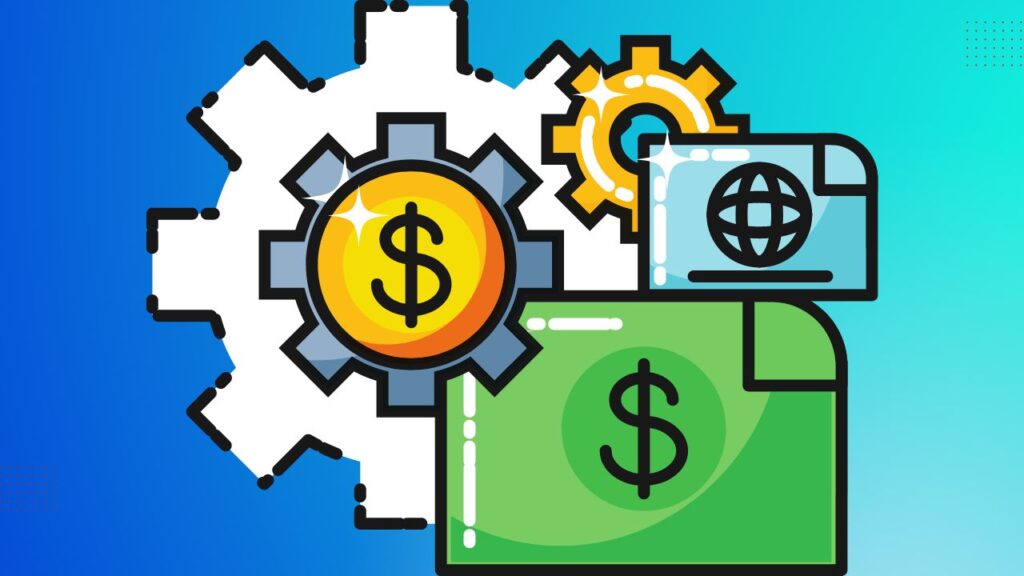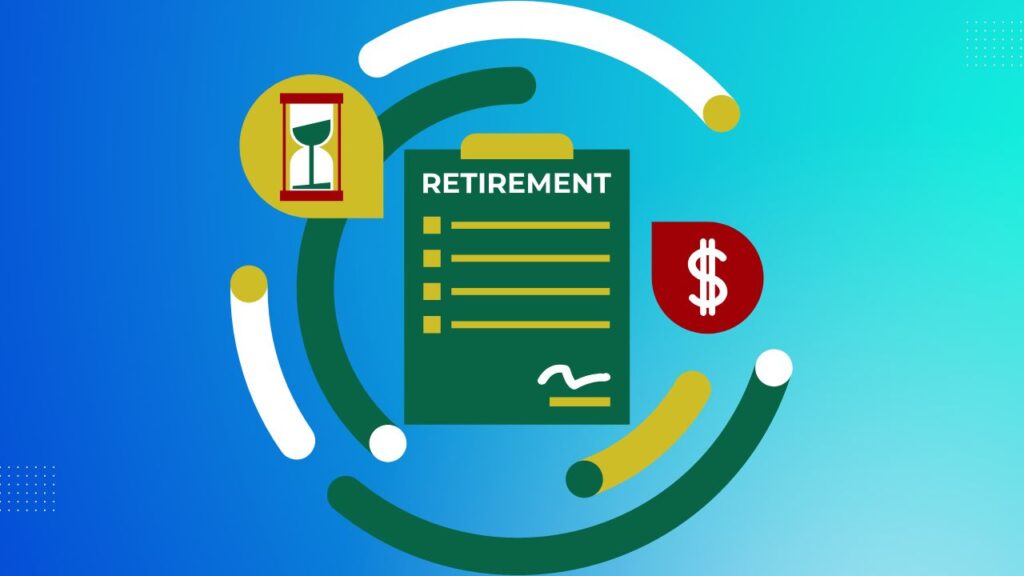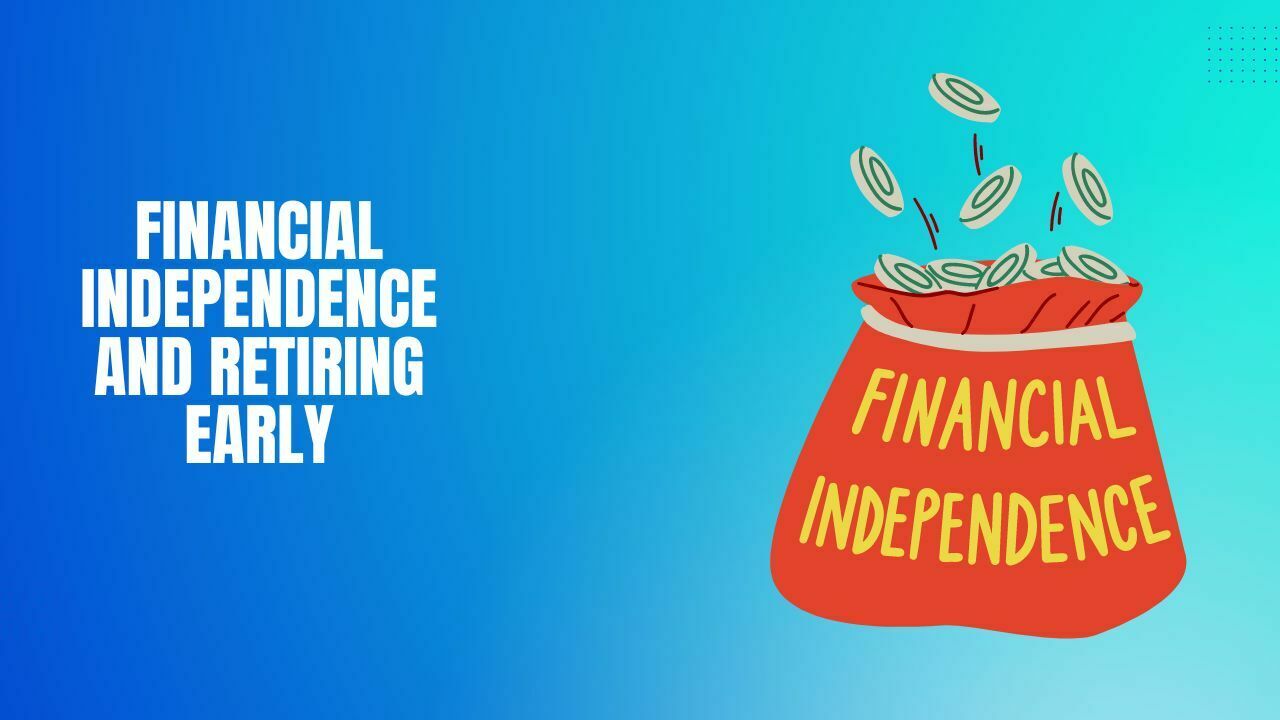Have you ever dreamed of achieving financial independence and retiring early?
You’re not alone!
Recent studies show that millennials are the most interested generation in achieving financial freedom and retiring early.
However, with mounting student loan debts, rising living costs, and job market uncertainty, the path to financial independence and early retirement may seem daunting.
But fear not! This article is here to reveal the secrets to achieving financial independence and retiring early as a millennial (F.I.R.E. for millennials).
According to a study by Bank of America, over 50% of millennials believe that financial independence is the most important marker of adulthood, more so than owning a home or getting married.
This desire for financial independence and early retirement is understandable, considering the skyrocketing costs of living and the pressure to save for the future.
So, if you’re a millennial who wants to take control of your finances and retire early, keep reading!
We’ll explore the definition of financial independence, the benefits of early retirement, and the steps you can take to achieve both.
By the end of this post, you’ll be equipped with the knowledge and tools to embark on your journey toward financial independence and early retirement (F.I.R.E.).
1. Understanding Financial Independence
1.1 Definition and Concept of Financial Independence
Financial independence is the state of having enough wealth to sustain your desired lifestyle without relying on a job or external sources of income.
In simpler terms, it means having enough money to cover your expenses and bills without being tied to a 9-to-5 job.
To achieve financial independence, you need to build up your net worth through saving and investing.
Your net worth is the difference between your assets (such as savings, investments, and property) and your liabilities (such as debt and loans).

1.2 Benefits of Achieving Financial Independence as a Millennial
- Greater Control over Your Life: Achieving financial independence means you have greater control over your life and career. You can choose to work on your terms, start your own business, or pursue a passion project without worrying about a steady paycheck.
- Less Stress and Anxiety: Financial independence gives you the freedom to take risks and make decisions that align with your goals and values. This can reduce stress and anxiety associated with job security, bills, and debt.
- More Time for Personal Growth: With financial independence, you have the time and resources to pursue personal growth and self-care. This can include travel, hobbies, or learning new skills.
- Generational Wealth: Achieving financial independence not only benefits you but also sets the foundation for generational wealth. You can pass on your financial knowledge and resources to future generations, creating a legacy of financial freedom.
1.3 Steps to Attain Financial Independence
- Define Your Financial Goals: The first step towards financial independence is to define your financial goals. This can include paying off debt, saving for retirement, or investing in real estate. Set specific and measurable goals to track your progress.
- Build an Emergency Fund: Before you start investing, build an emergency fund to cover unexpected expenses. Aim to save 3-6 months of living expenses in a high-yield savings account.
- Create a Budget: Creating a budget is essential to achieving financial independence. Track your income and expenses to identify areas where you can cut costs and increase savings.
- Pay off High-Interest Debt: High-interest debt, such as credit card debt, can eat away at your finances. Pay off your debt with the highest interest rates first to save money on interest payments.
- Invest in Retirement Accounts: Invest in tax-advantaged retirement accounts, such as a 401(k) or IRA, to save for retirement while reducing your taxable income.
- Build Multiple Streams of Income: Building multiple streams of income, such as freelance work or rental income, can help you achieve financial independence faster.
- Continuously Learn and Grow: Finally, continuously educate yourself on personal finance and investing to make informed decisions and stay on track toward your financial goals.
2. Early Retirement Planning for Millennials
2.1 Definition and Concept of Early Retirement
Early retirement refers to retiring from full-time work before the age of 65.
It is a popular goal among millennials who want to achieve financial independence and enjoy their retirement years while still young and healthy.
Early retirement is not just about quitting work; it’s about having the financial freedom to pursue other interests and hobbies without worrying about money.

2.2 Advantages of Early Retirement for Millennials
- More Time for Personal Growth: Early retirement gives millennials more time to pursue personal growth and self-care. They can travel, volunteer, or start a new business without worrying about work commitments.
- Better Health and Well-being: Studies show that early retirees tend to have better health and well-being than those who continue to work. They have more time for exercise, healthy eating, and stress-reduction activities.
- Increased Creativity and Productivity: Early retirees can use their free time to pursue creative projects and passions, leading to increased productivity and a sense of fulfillment.
- More Time with Family: Early retirement allows millennials to spend more quality time with their families, especially if they have children. They can attend school events, coach sports teams, or travel together.
2.3 Steps to Plan for Early Retirement
- Calculate Your Retirement Savings Needs: Use a retirement calculator to estimate your retirement savings needs based on your desired retirement lifestyle and expected expenses.
- Set a Retirement Goal: Set a specific retirement goal, such as retiring by age 50 or having a certain amount of retirement savings, to stay motivated and focused.
- Save and Invest Aggressively: To achieve early retirement, millennials need to save and invest aggressively. Consider maxing out your retirement accounts, such as 401(k) and IRA, and investing in stocks and real estate.
- Reduce Living Expenses: Early retirees need to reduce their living expenses to stretch their retirement savings. Consider downsizing your home, cutting unnecessary expenses, and living a frugal lifestyle.
- Create Multiple Streams of Income: Early retirees can create multiple streams of income, such as rental income or a part-time job, to supplement their retirement savings.
- Plan for Healthcare Costs: Early retirees need to plan for healthcare costs, which can be a significant expense in retirement. Consider enrolling in a high-deductible health plan or opening a Health Savings Account (HSA).
- Continuously Monitor and Adjust: Finally, continuously monitor your retirement savings and adjust your plan as needed. Keep track of your expenses and investment returns to ensure that you’re on track toward your early retirement goal.
3. Strategies for Achieving Financial Independence and Early Retirement (F.I.R.E.) as a Millennial
3.1 Developing a Budget and Sticking to It
One of the most crucial steps toward achieving financial independence and early retirement is to develop a budget and stick to it.
Budgeting helps millennials to manage their money effectively, control their expenses, and ensure they’re saving enough to meet their financial goals.
3.1.1 Creating a Spending Plan
To develop a budget, start by creating a spending plan.
A spending plan helps millennials to identify their monthly income, fixed expenses, and variable expenses.
Fixed expenses include rent or mortgage payments, utility bills, and loan payments, while variable expenses include groceries, entertainment, and travel.
To create a spending plan, follow these steps:
- List all sources of income, including salary, bonuses, and side hustle earnings.
- List all fixed expenses, such as rent or mortgage payments, insurance premiums, and loan payments.
- List all variable expenses, such as groceries, entertainment, and travel.
- Allocate money towards savings and investments.

3.1.2 Tracking Expenses
Once you’ve created a spending plan, the next step is to track your expenses.
Tracking expenses helps millennials to monitor their spending habits and identify areas where they can cut costs.
To track your expenses, follow these steps:
- Use a spreadsheet or budgeting app to record your expenses daily.
- Categorize your expenses, such as groceries, entertainment, and travel.
- Compare your actual spending to your spending plan to identify areas where you’re overspending or underspending.
- Adjust your spending plan as needed to ensure that you’re on track toward your financial goals.
By developing a budget and sticking to it, millennials can take control of their finances and make progress toward achieving financial independence and early retirement.
3.2 Building Multiple Streams of Income
Building multiple streams of income is another crucial strategy for achieving financial independence and early retirement.
Having multiple sources of income can help millennials to increase their earning potential, diversify their income streams, and build wealth faster.
3.2.1 Freelancing and Side Hustles
One way millennials can build multiple streams of income is by freelancing or starting a side hustle.
Freelancing and side hustles allow millennials to monetize their skills and interests outside of their main job and can provide a steady source of income.
According to a survey by Upwork, 59 million Americans freelanced in 2020, and the majority of freelancers reported earning more than they did in their traditional jobs.
In addition, side hustles have become increasingly popular among millennials, with a study by Bankrate reporting that 45% of millennials have a side hustle.
Some examples of freelance and side hustle opportunities for millennials include:
- Freelance writing or graphic design
- Selling products on Etsy or other online marketplaces
- Driving for Uber or Lyft
- Renting out a spare room on Airbnb
3.2.2 Investing in Stocks, Real Estate, and Other Assets
Another way to build multiple streams of income is by investing in stocks, real estate, and other assets.
Investing can provide passive income streams that require little to no effort once the initial investment is made.
For example, millennials can invest in stocks through a brokerage account or invest in real estate through rental properties or real estate investment trusts (REITs).
Other asset classes that can provide passive income include dividend-paying stocks, peer-to-peer lending platforms, and cryptocurrency.
According to a survey by Bankrate, 33% of millennials say they invest in the stock market, while a survey by Charles Schwab found that 53% of millennials plan to invest in real estate in the future.
By building multiple streams of income through freelancing, side hustles, and investing, millennials can increase their earning potential and work towards achieving financial independence and early retirement.
3.3 Reducing Debt and Saving for Retirement
3.3.1 Paying Off High-Interest Debt First
One of the biggest obstacles to achieving financial independence and early retirement is high-interest debt.
It’s essential to make a plan to pay off this type of debt as soon as possible.
High-interest debt, such as credit card debt, can quickly accumulate and lead to a cycle of debt that can take years to pay off.
To start, create a list of all your debts, including the interest rates and balances.
Then, prioritize paying off the debt with the highest interest rate first while making minimum payments on the others.
Once that debt is paid off, move on to the next one on the list.
This is called the debt avalanche method and can save you money on interest in the long run.
Another strategy is the debt snowball method, which involves paying off the smallest debt first, regardless of the interest rate.
This can give you a sense of accomplishment and momentum as you pay off debts one by one.
3.3.2 Saving for Retirement through Tax-Advantaged Accounts
Saving for retirement is a crucial part of achieving financial independence and early retirement.
One way to save for retirement is through tax-advantaged accounts, such as 401(k)s and Individual Retirement Accounts (IRAs).
A 401(k) is a retirement savings plan offered by many employers.
Contributions to a 401(k) are made pre-tax, which means they are deducted from your paycheck before taxes are taken out.
This can lower your taxable income and reduce your tax bill.
Additionally, many employers offer matching contributions, which can help grow your savings even faster.
An IRA is an individual retirement account that allows you to save for retirement on your own.
There are two types of IRAs: traditional and Roth.
Contributions to a traditional IRA are tax-deductible, and the money grows tax-deferred until retirement.
With a Roth IRA, contributions are made with after-tax dollars, but the money grows tax-free, and withdrawals in retirement are tax-free as well.
It’s important to start saving for retirement as early as possible to take advantage of compound interest.
By saving a little bit consistently over a long period, you can accumulate a substantial nest egg that can support you in retirement.
4. Overcoming Common Challenges in Achieving Financial Independence and Early Retirement as a Millennial
4.1 Lack of Financial Literacy and Knowledge
One of the biggest challenges that millennials face when it comes to achieving financial independence and early retirement is a lack of financial literacy and knowledge.
According to a study by the National Endowment for Financial Education, only 24% of millennials demonstrate basic financial literacy skills.
This lack of knowledge can lead to poor financial decision-making and difficulty in achieving financial goals.
To overcome this challenge, millennials need to invest time in educating themselves about personal finance.
They can start by reading books and articles about personal finance, attending financial workshops, or taking online courses.
They can also seek advice from financial experts, such as financial planners or advisors.

4.2 Peer Pressure and Keeping Up with the Joneses
Another common challenge that millennials face is peer pressure and the desire to keep up with the Joneses.
Millennials are often bombarded with social media posts and advertisements showcasing luxurious lifestyles, expensive vacations, and high-end material possessions.
This can create a sense of FOMO (fear of missing out) and the need to keep up with their peers.
To overcome this challenge, millennials need to learn to distinguish between wants and needs.
They should focus on their own financial goals and priorities, rather than comparing themselves to others.
They can also seek support from like-minded individuals who share similar values and financial goals.
4.3 Procrastination and Lack of Discipline
Procrastination and lack of discipline are also common challenges that millennials face when it comes to achieving financial independence and early retirement.
It’s easy to get caught up in the day-to-day demands of work and life and neglect long-term financial planning.
To overcome this challenge, millennials need to develop good habits and routines that support their financial goals.
They should set specific financial goals and create a plan to achieve them.
They should also automate their savings and investments so that they don’t have to rely on willpower or discipline to stay on track.
Finally, they should hold themselves accountable by tracking their progress and regularly reviewing their financial plan.
5. Maintaining Financial Independence and Early Retirement as a Millennial
5.1 Creating a Sustainable Lifestyle
Achieving financial independence and early retirement is a great accomplishment, but it’s equally important to maintain this lifestyle once you achieve it.
A sustainable lifestyle means living within your means and ensuring that you have enough money to sustain your lifestyle in the long run.
This section will discuss some tips for creating a sustainable lifestyle that will help you maintain financial independence and early retirement.
5.1.1 Living Below Your Means
Living below your means is one of the fundamental principles of achieving and maintaining financial independence and early retirement.
It means spending less money than you earn and avoiding the temptation to overspend.
When you live below your means, you can save more money, invest in your future, and reduce your financial stress.
One of the best ways to live below your means is to create a budget and stick to it.
A budget will help you track your income and expenses and ensure that you are not overspending in any category.
Start by tracking your expenses for a month and categorize them into fixed expenses, variable expenses, and discretionary expenses.
Fixed expenses are bills that you have to pay every month, such as rent, mortgage, car payments, and insurance.
Variable expenses are expenses that fluctuate from month to month, such as groceries, utilities, and entertainment.
Discretionary expenses are expenses that you can do without, such as dining out, shopping, and vacations.
After you have tracked your expenses, evaluate your spending and identify areas where you can cut back.
Look for ways to reduce your fixed expenses, such as refinancing your mortgage or negotiating lower insurance rates.
For variable expenses, look for ways to reduce your bills, such as turning off the lights when you leave a room or taking shorter showers.
For discretionary expenses, look for ways to cut back on non-essential spendings, such as cooking at home instead of eating out, shopping at discount stores, or taking a staycation instead of an expensive vacation.

5.1.2 Adopting a Minimalist Mindset
Adopting a minimalist mindset is another important factor in creating a sustainable lifestyle.
Minimalism is a lifestyle that emphasizes living with less stuff and focusing on the things that truly matter.
By reducing clutter and simplifying your life, you can save money, reduce stress, and live a more fulfilling life.
To adopt a minimalist mindset, start by decluttering your home and getting rid of things that you don’t need or use.
This could include clothes that you haven’t worn in months, books that you’ve already read, or kitchen gadgets that you never use.
Once you have decluttered your home, be mindful of your purchases and avoid buying things that you don’t need or won’t use.
Instead, focus on buying high-quality items that will last a long time and bring you joy.
Another way to adopt a minimalist mindset is to focus on experiences rather than things.
Instead of buying more stuff, invest in experiences that will enrich your life and create lasting memories.
This could include traveling to new places, trying new hobbies, or spending quality time with friends and family.
By living below your means and adopting a minimalist mindset, you can create a sustainable lifestyle that will help you maintain financial independence and early retirement.
Remember, it’s not just about achieving these goals, but also about maintaining them in the long run.
5.2 Continuously Learning and Growing
5.2.1 Staying Up-to-Date with Personal Finance News and Trends
To maintain financial independence and early retirement, it’s important to stay informed about the latest news and trends in personal finance.
This includes keeping up-to-date with changes in tax laws, investment opportunities, and new savings strategies.
One great way to stay informed is to follow reliable sources of personal finance news, such as The Wall Street Journal, CNBC, and Forbes.
These outlets provide in-depth analysis of financial news and offer expert advice on a variety of personal finance topics.
Additionally, many personal finance websites and blogs offer regular updates on the latest news and trends in the industry.
5.2.2 Investing in Yourself and Your Education
Investing in yourself and your education is another key component of maintaining financial independence and early retirement.
This can include pursuing higher education, attending professional development courses, and learning new skills that can help you advance your career.
By investing in yourself, you can increase your earning potential and open up new opportunities for growth and advancement.
Additionally, developing new skills and knowledge can help you better manage your finances and make informed decisions about your investments and retirement planning.
There are many resources available to help you invest in yourself, including online courses, professional development programs, and mentorship opportunities.
By taking advantage of these resources, you can continually grow and improve your financial situation, while also building the skills and knowledge needed to achieve long-term financial success.
Bottom Line…
Hopefully, you now have a solid understanding of the secrets to achieving financial independence and retiring early as a millennial.
By following the steps we’ve outlined, you can be on your way to financial freedom and the ability to retire early, if that’s your goal.
Remember that achieving financial independence is not a one-time event, but a lifelong journey.
It requires discipline, dedication, and hard work.
The good news is that you’re not alone – there is a wealth of resources available to help you along the way, from books and blogs to financial advisors and coaches.
Keep in mind that the earlier you start on this journey, the better.
The power of compound interest means that even small steps taken now can have a big impact on your future financial security.
So, don’t wait – start taking action today.
Finally, always remember that financial independence is not just about money – it’s about having the freedom and flexibility to live the life you want.
It’s about having the time and resources to pursue your passions, travel, spend time with loved ones, and give back to your community.
By taking control of your finances and working towards financial independence, you can create the life you’ve always dreamed of.

5 thoughts on “The Secrets to Achieving Financial Independence and Retiring Early as a Millennial”